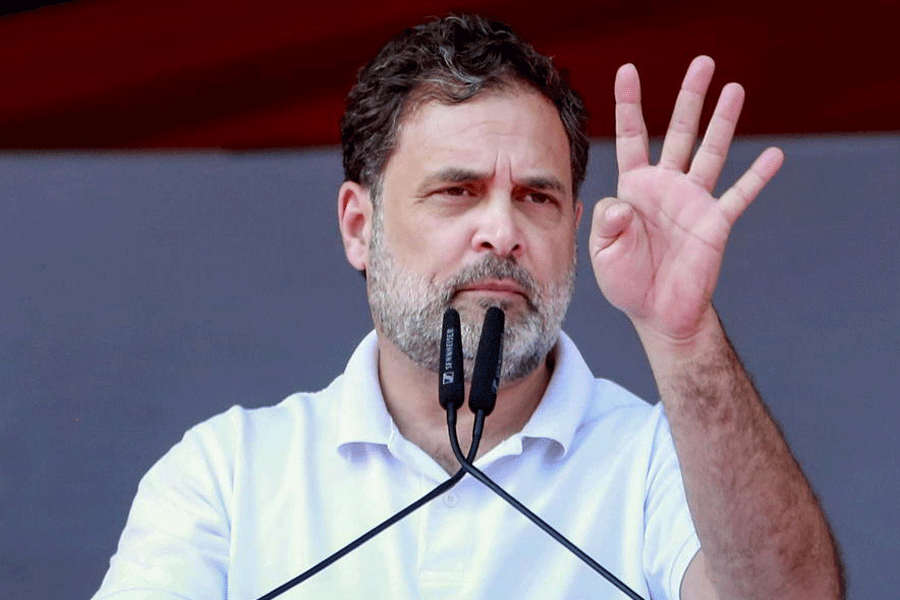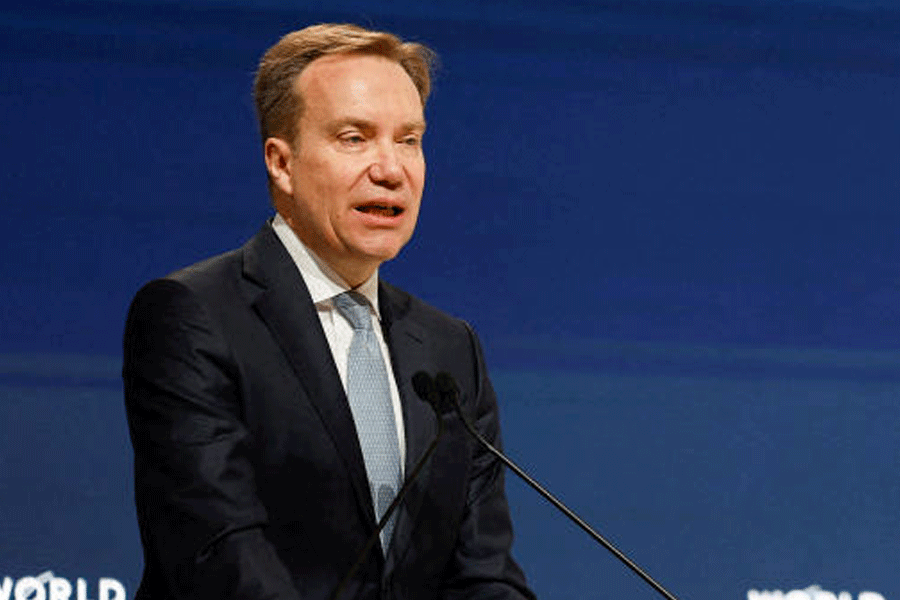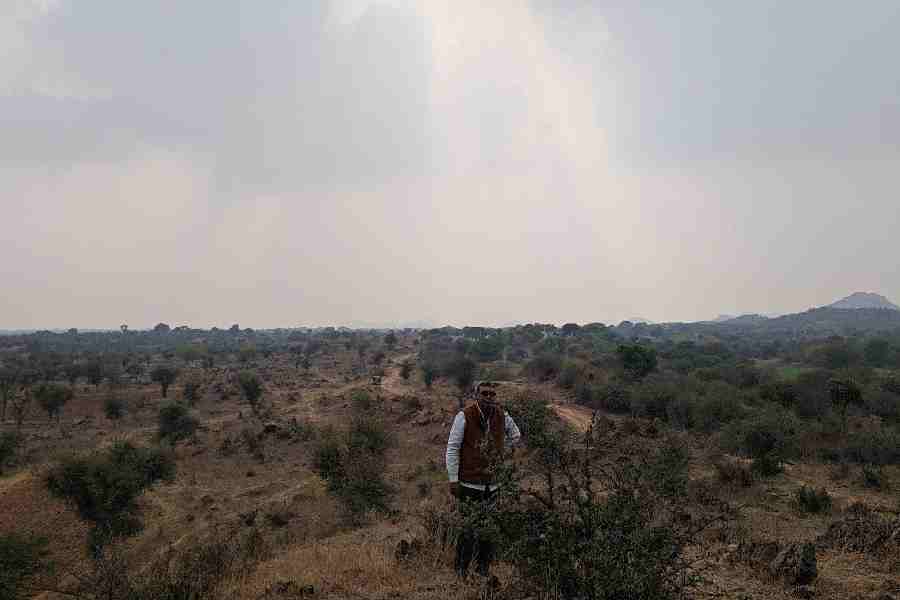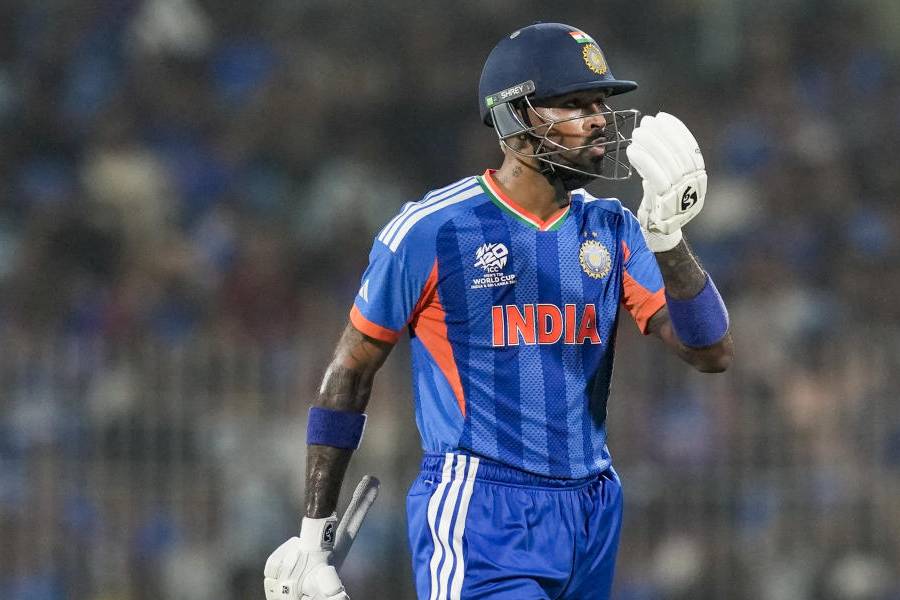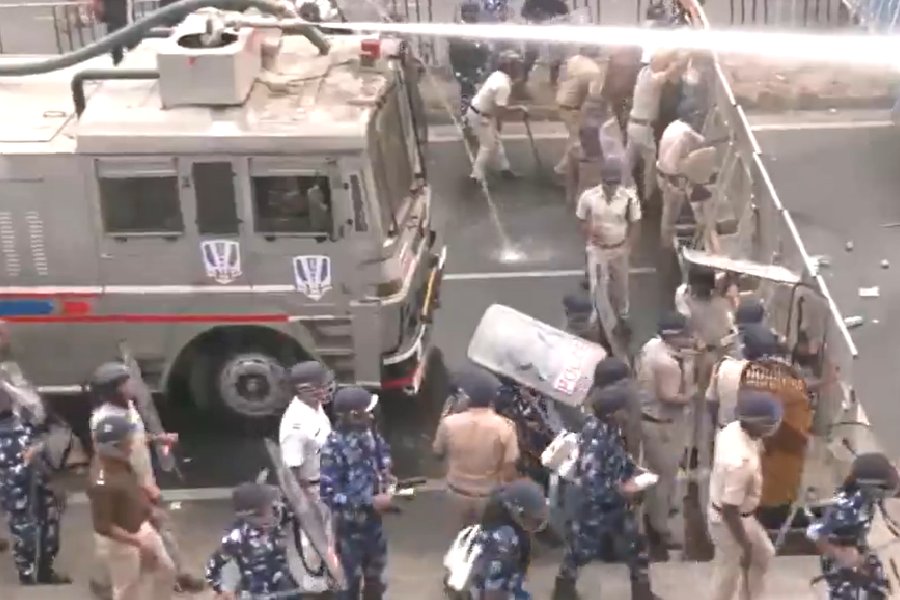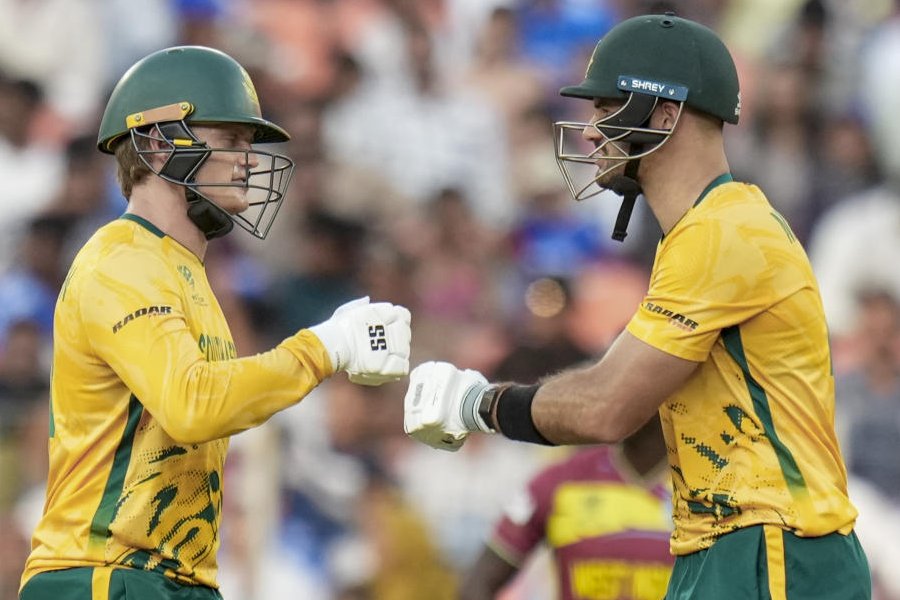 |
| Syrian refugees stand outside tents after heavy rain at a camp in Jordan on Tuesday. (Reuters) |
We found Mohammed Ali by chance. He works in a petrol station in Reyhanli, a Turkish town on the Syrian border, and sleeps on the floor in a back room. His appearance is unremarkable but his story is astonishing.
He was one of 21 men lined up and shot by a firing squad near Aleppo last summer and the only one who survived to tell the tale.
Customers and fellow employees gathered around, transfixed, yesterday morning as he sat in the station’s cafe and recalled how he cheated death at the hands of the regime of President Bashar alAssad.
“It was a miracle,” he said. “When I think about it there’s no explanation except that Allah didn’t want me to die. My hour had not yet come.”
Before the revolution, Mohammed, 29, was working as a tailor in Beirut, but last August returned to his home in the rebellious town of Harithan, a few miles northwest of Aleppo, for Ramazan.
On August 22, he went into the city to buy a mobile phone SIM card, but the regime’s Shabiha thugs stopped him at a checkpoint in Sadala Square, discovered that he came from Harithan and arrested him.
He was put in a car boot, driven to a nearby intelligence base and locked in a small, windowless basement cell with 11 other males two of them 13yearold cousins. One had been caught with a picture of the rebel flag on his mobile. The others had simply been plucked from the streets for being the wrong age and wrong sex.
They were held in the cell for three days blindfolded, hands tied behind their backs, with no food or water. At no point were they questioned or interrogated. On the third night, they were told they were being taken to another prison.
They were put into a van with other prisoners 21 in all and driven away, still blindfolded.
They stopped 20 minutes later. Their captors ordered them out at gunpoint, and made them kneel, shoulder to shoulder, in two lines.
Mohammed was the last in his line. He could tell from the silence and rough ground that they were on wasteland. “I realised this was some sort of killing field,” he said, and began reciting the Shahada, the prayer Muslims say before death.
He felt strangely calm, he said.
“My only worry was that my family would never find my body because they had taken away our identity cards and rings and everything.”
Then he fainted, whether from fear or lack of sustenance, and remembers nothing of what happened next.
When he awoke he had been shot five times, but was still alive. His captors had gone. He could see in the darkness that his fellow prisoners had toppled forward into the dirt, still in their lines, most shot through their heads. He checked five or six of the bodies, but all were dead.
Their blood had soaked into the soil.
“I was very, very lucky. I thanked Allah. Fainting probably saved me. They thought I was dead,” he said.
At that point in his story, Mohammed stood up and removed his shirt for the benefit of his audience.
There was a livid scar where a bullet had entered his chest and exited through his right shoulder.
He showed another bullet wound above his right buttock, and two in his right calf.
A fifth bullet passed through his left earlobe.He was drenched in blood, he continued, but no bones were broken and he felt no pain.
Terrified that he would be seen and recaptured, he fled the scene, avoiding roads until he reached a village.
Not knowing whether it was for or against the regime, he knocked on a door and told the men inside that he had been shot by robbers. They drove him to a hospital in Aleppo in a Suzuki fourwheel drive.
It was 2am, and he borrowed a mobile to call his brother who arrived at 6am and whisked him home. From there, the Free Syrian Army spirited him north to Turkey, where he was treated in a hospital in Kilis.
For several months after his escape Mohammed could not sleep. He is still deaf in his left ear, and grieves for his fellow prisoners, but has recovered otherwise.
Today he lives in limbo. He has no wish to return to Syria – “the country I knew has been destroyed,” he said. He cannot return to Beirut because the regime took his passport.
Two months ago, he moved to Reyhanli because he has relatives there. Eleven days ago, a doctor there found and removed a bullet that was still lodged in his calf, and Mohammed produced it for us to inspect.
In Beirut, he said, he used to believe President Assad’s propaganda about the rebels being “terrorists” and dismissed as lies the stories of regime atrocities he saw on the alJazeera news channel.
“Now I can’t find the words to describe how I feel about the regime. What they do disgusts me. It makes me cry in my heart, not just in my eyes. I want what happened to me to happen to them. I want to see them lined up and executed.”


